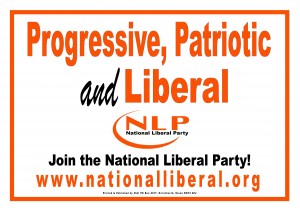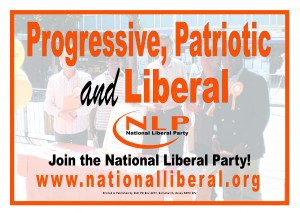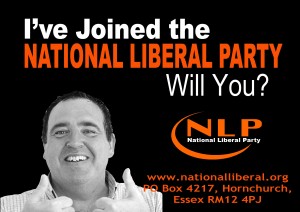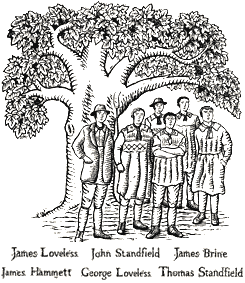
Freedom of the press?
 THE RECENT furore over several ‘Super-Injunctions’ (and the Ryan Giggs affair in particular) has attracted the interest of both press and politicians.
THE RECENT furore over several ‘Super-Injunctions’ (and the Ryan Giggs affair in particular) has attracted the interest of both press and politicians.
The press are outraged that the ‘rich and famous’ can legally prevent them revealing celebrity private secrets to the benefit of their readers, to those selling their story and – they hope – to their circulations.
Prime Minister David Cameron opposes the injunctions whist High Court judges support them. Liberal Democrat MPs have once again exposed their present schizophrenic role in politics.
On the one hand, John Hemmings MP revealed the identity of ‘the well-known footballer who plays for an English Premiership team’ in Parliament. This ‘allowed’ the press to report what the injunction had prevented.
On the other hand these very same Liberal Democrats are the victims of press speculation (partially motivated by political malice) on a private, although potentially illegal, matter involving Chris Huhne MP.
More crucially, these Super-Injunction cases have also highlighted many questions of principle.
FREE PRESS
As National Liberals we support a ‘Free Press’ as one element in maintaining our individual liberties by holding authority to scrutiny and exposing abuses of power.
As believers in individual liberty, however, we also value the right to privacy from intrusive surveillance or interference.
The ‘Giggs’ affair has highlighted the inherent conflict between total transparency and privacy. So what should our view be?
The press rightly oppose curbs to their ‘freedoms’ citing the expense scandal as an example of the need to prevent the ‘rich, famous and powerful’ from hiding their misdemeanors. They say that it’s in the national and/or public interest to expose the behaviour of ‘public figures.’ Does this apply in this or similar cases?
DIFFERENCE BETWEEN WHAT IS IN THE INTEREST OF THE PUBLIC AND PUBLIC INTEREST
Firstly, there is a difference between what is, allegedly, of interest to the public and being in the public interest. Exposure of whoever has abused their positions of power or authority or broken the law is clearly in the public interest. Who has or has not had an affair (which however distasteful is not illegal) is not in the public interest.
Secondly, long gone are the days of the ‘crusading press’. A circulation war in order to protect vital advertising revenue has meant appealing to the lowest common denominator. Sadly this has meant sensationalist reporting which has encouraged entrapment, illegal bugging and ‘kiss n’ tell’ stories rather than facts. Although the broadsheets attempt to distinguish themselves from the Tabloids in their content the circulation of the latter far exceeds the former. The exposure of so-called stars is therefore not motivated by the public interest. It is moot point whether the press are following the public’s (or a large section of) prurient interest in other people’s personal lives or the other way round? Either way we don’t believe the law is designed to enshrine that as a right.
Thirdly, whilst it is arguable that a ‘moral lapse’ may reflect or impact upon the judgement or invite the pressure/blackmail of public figures, it is of little relevance when it involves so-called ‘celebrities’. The argument that they are somehow role models is perhaps more in the mind of critics (and is possibly motivated by jealousy and/or envy) than the public. How exposing human frailty will assist in elevating such a role is difficult to imagine? Indeed exposing their ‘human’ weaknesses undermines their so-called role model status (and presumably provides a negative influence?). We cannot expect however a public figures moral behaviour (within the law) to be that much different from members of the ‘ordinary’ public so any aberration is not in the public interest.
FREE SPEECH VS RIGHT TO PRIVACY?
Moving from the moral to the legal, a great deal of legal wrangling is over which ‘right’ as enshrined in the Human Rights Act trumps the other? Is it the right to privacy in Article 8 or the right to free speech in Article 10? There are no grey areas i.e. no qualification of those rights, so the contradiction remains. Introducing the Courts into the equation also throws up questions of who guards or takes away our rights. Do the Courts become our moral guardians? Does money make the difference? Can they (should they?) regulate social networking mediums?
Common sense however should be able to distinguish between the right of free speech and the spreading of gossip and the right of privacy and the right to cover-up corrupt or illegal practices. A footballer’s moral foibles should not be the focus of a free press who should conduct themselves in a moral way by not wallowing in the gutter. The present press/public obsession with celebrity private lives is clearly unhealthy.
Since however self-regulation is clearly not the answer given the pressure to sell papers, then it must be exercised either by the Courts (which requires lots of money and may precipitate a constitutional crisis) or by another body.
COMMONSENSE AND STRONGER ‘IN-HOUSE’ REGULATION ABOUT THE RIGHT BALANCE
Former head of the Press Complaints Commission (PCC) Lord Wakeham has suggested that the Courts only grant injunctions where the issues “impact on public authorities and the state” and the slack taken up by an enhanced PCC. There may be merit in the idea providing they wish to ‘uplift’ press behaviour i.e. in what they report and how, and make the crucial distinction between what is in the public interest (and therefore open season) against what is in the interest of the public (which must not be allowed to override an individual’s privacy). Whilst it is difficult to legislate/write rules which clearly define the difference, an application of commonsense and a much stronger PCC could allow us to find the right balance between the ‘freedom of the press’ and the freedom (of privacy) of the individual




































 month. Industrial action – in opposition to government cuts and pension reforms – is scheduled for June30. Areas affected would include schools, councils, the NHS and Whitehall.
month. Industrial action – in opposition to government cuts and pension reforms – is scheduled for June30. Areas affected would include schools, councils, the NHS and Whitehall.
 Tolpuddle Martyrs of 1834 and the origins of the Labour Party lie in the late 19th century. Both organisations were set up with the honourable intention of representing ordinary workers.
Tolpuddle Martyrs of 1834 and the origins of the Labour Party lie in the late 19th century. Both organisations were set up with the honourable intention of representing ordinary workers. THE RECENT furore over several ‘Super-Injunctions’ (and the Ryan Giggs affair in particular) has attracted the interest of both press and politicians.
THE RECENT furore over several ‘Super-Injunctions’ (and the Ryan Giggs affair in particular) has attracted the interest of both press and politicians.